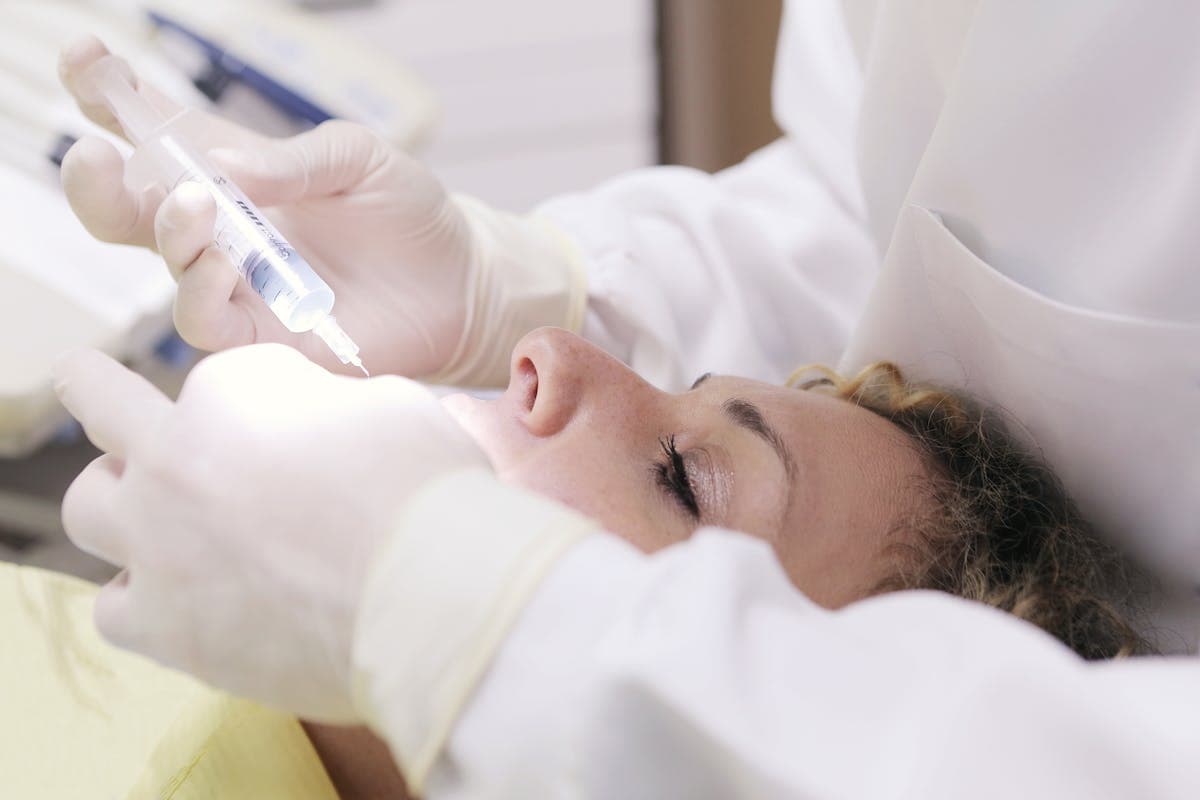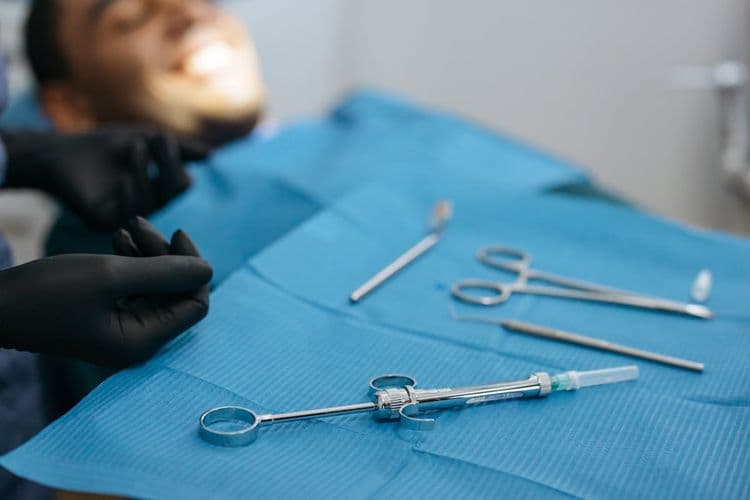Dental anxiety is a pervasive issue that hinders many from receiving necessary oral care, ultimately jeopardizing their overall health. This prompts the inquiry: how can we effectively mitigate dental anxiety to encourage individuals to regularly visit their dentist without fear or discomfort? A variety of strategies such as open communication, cognitive behavioral therapy, mindfulness techniques, and more have shown promise. Notably, innovative distraction methods like music therapy and virtual reality are making their way into the dental field. Exploring these approaches might just be the key to transforming dental experiences.
Understanding Dental Anxiety
Although it may seem surprising to some, dental anxiety is a common phenomenon that affects individuals of all ages. It is a psychological condition characterized by an intense fear or apprehension related to dental procedures. Different dental triggers, such as the sound of the drill, the sight of needles, or even the mere thought of a dental visit, can ignite anxiety symptoms. These symptoms can range from mild unease to debilitating fear, leading to avoidance of dental care and, consequently, compromised oral health. Understanding dental anxiety is vital for both patients and dental practitioners. By acknowledging this condition, we can start the journey towards developing effective strategies that can help mitigate this fear and improve the overall dental experience.
The Impact of Dental Phobia
While dental anxiety can cause substantial distress, dental phobia is even more severe, leading to significant impacts on an individual’s life. This intense fear can be triggered by various factors, known as dental phobia triggers, such as past traumatic experiences, fear of pain, or even the clinical environment itself. These triggers can lead to avoidance behavior, causing individuals to neglect their oral health, which can result in severe dental problems. Additionally, it can also affect one’s mental health, leading to feelings of embarrassment, self-consciousness, and decreased self-esteem. However, understanding these triggers can aid in developing coping strategies, which is essential in managing dental phobia. These may include cognitive behavioral therapy, guided relaxation techniques, and exposure therapy, which aim to reduce fear and anxiety.
Communication With Your Dentist
Open communication with your dentist is an essential component of mitigating dental anxiety. Understanding dental procedures, articulating your fears, and fostering trustful relationships can greatly reduce apprehension and promote a positive dental experience. Let’s explore these critical elements and their role in alleviating dental anxiety.
Understanding Dental Procedures
Ever wondered why your dentist uses certain instruments or follows particular procedures during your visit? Understanding the various dental tools and procedure types can help alleviate anxiety. Dentists use a range of tools, each designed for a specific purpose. The dental mirror, for instance, allows your dentist to view hard-to-see areas in your mouth. The dental drill, which may cause some anxiety, helps remove decay before filling a cavity. By knowing the purpose of these tools, it makes the procedures less intimidating. It’s also key to understand procedure types. From regular cleanings to more complex procedures like root canals, each has a specific goal towards maintaining your dental health. Knowledge of these can make your dental visits less stressful.
Expressing Your Fears
How can you cope with your dental anxiety? Communication with your dentist is essential. Most importantly, express your fears. This step is not about seeking a solution, rather it’s about fear validation and emotional support.
- Understand that it’s common to feel anxious about dental visits.
- Be honest about your anxiety level and specific fears.
- Ask your dentist to explain procedures in a way that comforts you.
Building Trustful Relationships
Building trustful relationships with your dentist can greatly reduce dental anxiety by fostering a sense of mutual understanding and respect. Trust building begins with open and honest communication. Expressing your fears and concerns allows your dentist to provide tailored care, thereby enhancing patient rapport.
Moreover, a dentist who understands your anxiety can employ strategies to alleviate it, such as explaining procedures in detail or providing reassurances. Regular dental visits also contribute to trust building, as they offer opportunities for regular interaction and the development of a comfort level over time. Fundamentally, a trustful relationship with your dentist is an essential component in the journey towards dental anxiety relief.
Sedation Dentistry Explained
As we explore strategies for relieving dental anxiety, one promising approach is sedation dentistry. This method can provide numerous benefits, making dental procedures more comfortable for patients who experience anxiety. We will examine what sedation dentistry entails, its advantages, and the specific procedures involved.
Understanding Sedation Dentistry
Ever wondered what sedation dentistry entails? It’s a practice designed to alleviate anxiety and provide patient comfort during dental procedures. By using various sedation options, dentists can guarantee a painless and relaxed experience, transforming the way patients view dental visits.
Here’s a brief overview of sedation dentistry:
- Inhaled Sedation: Nitrous oxide, also known as laughing gas, is inhaled through a mask. This helps patients relax while remaining awake.
- Oral Sedation: Sedative pills are taken orally an hour before the procedure. This can range from minimal to moderate sedation.
- IV Sedation: Sedatives are administered intravenously, allowing the dentist to adjust the sedation level rapidly.
Understanding these options can empower you to communicate your needs effectively, guaranteeing a comfortable dental experience.

Benefits of Sedation Dentistry
While dental procedures may be intimidating for many, the advent of sedation dentistry has managed to transform this experience greatly. The sedation benefits are numerous and extend beyond just calming nerves. It can alleviate the common fears associated with dental visits, creating a serene environment for both the patient and dentist. This tranquil atmosphere contributes considerably towards patient comfort, allowing for more efficient treatment. Sedation dentistry can also facilitate several procedures in a single visit, saving valuable time. Additionally, it promotes better overall oral health by encouraging regular dental visits for those previously deterred by fear. Essentially, sedation dentistry is not just about making dental procedures bearable, but rather about enhancing the quality of dental care.
Sedation Dentistry Procedures
Typically, sedation dentistry encompasses a wide range of procedures designed to make dental visits more comfortable and less stressful for patients. These procedures, collectively referred to as sedation options, are essential for patient safety and comfort.
Different sedation dentistry procedures include:
- Oral Sedation: This involves taking a prescribed pill an hour before the dental procedure. It helps the patient feel relaxed but does not induce unconsciousness.
- Inhalation Sedation: Often known as laughing gas, this method involves inhaling a mixture of nitrous oxide and oxygen, which creates a calming effect.
- Intravenous Sedation: Administered directly into the bloodstream, this option provides a deeper level of sedation.
These methods prioritize patient safety, providing a stress-free dental experience.
Cognitive Behavioral Therapy (CBT)
Despite the prevalence of dental anxiety, Cognitive Behavioral Therapy (CBT) has shown promising results in addressing this concern. CBT is a type of psycho-social intervention that aims to improve mental health by challenging and changing unhelpful thoughts, beliefs, and attitudes. Central to this approach is cognitive restructuring, a process that helps individuals to identify and dispute irrational or maladaptive thoughts.
In the context of dental anxiety, cognitive restructuring can challenge fears about dental procedures, promoting a healthier perception of the dental experience. Additionally, CBT may incorporate exposure therapy, where patients gradually and systematically face their dental fears in a safe and controlled environment. This aids in reducing anxiety responses and increasing tolerance to dental procedures. Hence, CBT offers a viable and empowering approach to overcoming dental anxiety.
Mindfulness and Relaxation Techniques
Building upon the foundation of Cognitive Behavioral Therapy, another approach to alleviating dental anxiety involves mindfulness and relaxation techniques. Mindfulness promotes a focus on the present, reducing the scope for anxiety about future dental procedures.
Three notable techniques include:
- Mindful Breathing: This involves focusing on your breath, acknowledging thoughts without judgment, and gently returning your focus back to your breath.
- Guided Imagery: This technique involves visualizing peaceful scenarios or places to induce relaxation.
- Progressive Muscle Relaxation: This involves tensing and then relaxing each muscle group, promoting physical relaxation which can also soothe mental stress.
These techniques can provide tools for self-regulation of anxiety, fostering a more comfortable and relaxed dental experience.
Distraction Methods During Procedures
To alleviate the stress and anxiety associated with dental procedures, distraction methods have proven to be highly effective. Virtual reality is a novel approach that immerses patients in a calming environment, effectively diverting their attention from the procedure. Music therapy, another effective tool, uses soothing tunes to relax patients, reducing their perceived pain levels. Distraction toys, particularly useful for younger patients, engage the mind, helping to lessen the focus on the dental operation. Guided imagery, a technique involving the visualization of peaceful scenarios, can also be employed to reduce anxiety. These methods, used singularly or combined, can considerably improve a patient’s overall dental experience, making the procedure more tolerable and less intimidating.
Maintaining Regular Dental Visits
While these distraction methods can greatly enhance the dental experience, the significance of regular dental visits cannot be overstated. Regular check-ups are central to preventive care, helping to identify potential issues before they become severe problems.
Patient education is another essential aspect of regular visits. Dental professionals can provide valuable insights and practical tips for maintaining oral health at home.
- Regular dental visits allow for early detection of oral health issues, making treatment easier and more effective.
- Patient education during these visits enhances understanding and awareness about oral health, encouraging better home care.
- Regular check-ups also guarantee that any dental appliances or treatments are working effectively, and adjustments can be made as necessary.
Understanding these benefits can help alleviate anxiety and make dental visits a routine, rather than a source of stress.
Frequently Asked Questions
What Are Some Natural Remedies for Dental Anxiety?
Natural remedies for dental anxiety include aromatherapy techniques, using essential oils like lavender for relaxation. Additionally, mindfulness practices such as deep breathing and visualization can be effective in reducing fear and stress associated with dental procedures.
Can Hypnotherapy Help in Overcoming Dental Fear?
Yes, hypnotherapy can be beneficial in overcoming dental fear. Hypnotherapy techniques are designed to promote relaxation and anxiety reduction, which can help patients manage their apprehensions and make dental visits less stressful.
How Does Physical Exercise Help in Reducing Dental Anxiety?
Physical exercise aids in anxiety reduction by promoting the release of endorphins, known as “feel-good” hormones, that improve mood and relaxation. This physiological effect can effectively alleviate feelings of anxiety, including those associated with dental procedures.
Are There Any Specialized Clinics for Patients With Dental Phobia?
Yes, there are specialized clinics that cater specifically to patients with dental phobia. These clinics provide a comfortable and supportive environment, utilizing various techniques to lessen anxiety and make dental procedures more manageable for patients.
Can Certain Dietary Changes Help Manage Dental Anxiety?
Certain dietary changes, such as incorporating calming teas and dietary supplements, can indeed contribute to managing anxiety. However, individual responses vary and these changes should be complemented with professional mental health support.


